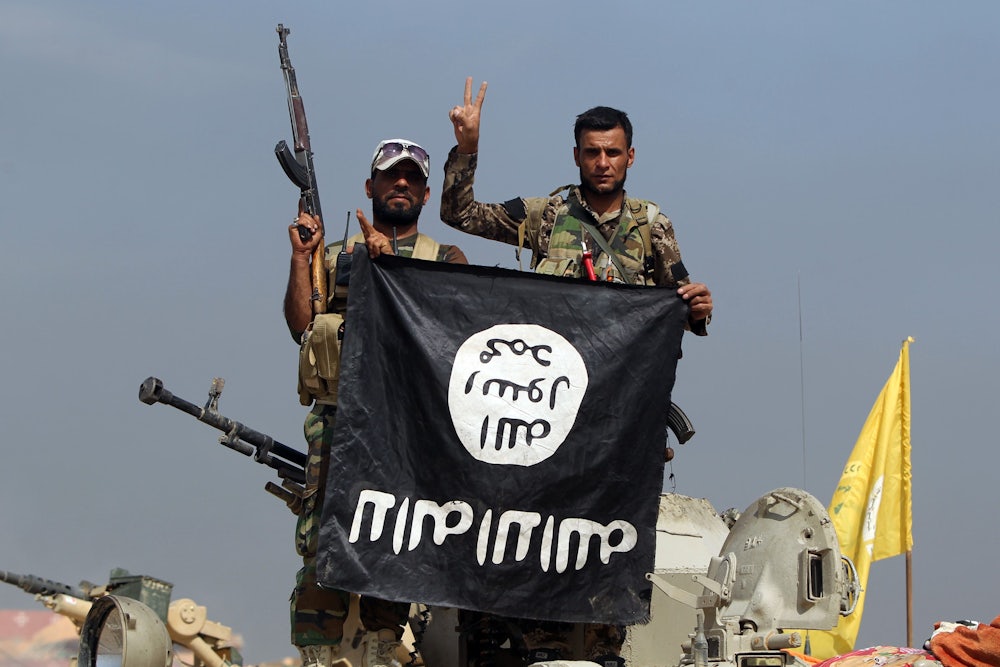Back in March, The Atlantic’s Graeme Wood published a long feature aiming to dissect the true nature and goals of the so-called Islamic State. From Wood’s view, ISIS is both unlike terror syndicates of the recent past (like Al Qaeda) and yet just as fervently, intensely religious. “The reality is that the Islamic State is Islamic,” Wood wrote. “Very Islamic.”
Naturally, detractors disagreed. Writers at ThinkProgress and Salon pointed out that ordinary Muslims do not see their faith reflected in the brutality of ISIS, and that the group is not an inevitable outgrowth of Islam itself. Critics were especially emphatic that the theology of ISIS, however intently the group avers its authenticity, should not be imputed onto all Muslims. Here at the New Republic, Mehdi Hasan explored the idea that while religion has a role in ISIS, it may not be foundational.
Indeed, for all the general discussion of ISIS’s fundamentals, it is a remarkably fluid organization. It has had many names, many commanders, and only officially decided it is a caliphate last June. It also appears to be caught in the same struggle all believers always are: trying to claim and source authority for the idea that it is the only authentic expression of its faith. These debates exist within every faith, where boutique strands of belief tend to arise and dissolve with surprising frequency, with some surviving the trial of history and becoming obviously legitimate. It’s hard to predict which strands will make it and which will die out.
But one thing is constant: Religious organizations are always about more than religion.
